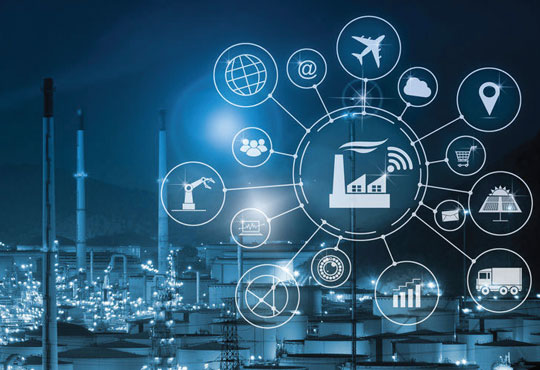
Industry 4.0: An Overview
Prashant Pandharinath Ahire, Vice President & Head - PMO & Service Delivery, Technology Solution Group, IIFL Finance | Wednesday, 09 February 2022, 07:31 IST

Industry 4.0 has encompassed new technologies like Internet of Things, Artificial Intelligence, Cloud Computing, Cognitive Computing and Augmented Realities. What are the major challenges that companies face in the adoption of these new technologies?
Industry 4.0 is not a product, but journey where adoption/rollout takes time due to various challenges encountered during adoption cycle like resource availability which will have passion to work on this and ready to work on invisible paradigm with required skill. We have to balance internal/statutory requirement like data sharing policy for information/ cybersecurity control, interoperability between two systems for integration of tow or multiple different system to bring input to main controller, security threats due to various location access & different integrator following different policy. Data storage location & policy add another dimension from PII perspective.
Industry 4.0 solutions give businesses greater insight, control and data visibility across their entire supply chain. How can companies deliver services and products to market, faster, cheaper and better quality to gain an advantage over less efficient competitors by leveraging supply chain management capabilities?
"Predictive analytics is giving edge to domains like Preventive Maintenance, Reliably center maintenance to predict machine behaviour in future and proactive action to line-up"
Integrated SCM platform which is enabling us to be more customer centric though realtime integration of factory to customer (market) including customer sentiment, behaviour, demand & supply pattern & adjust SCM response as per consumer behaviour/requirement right from manufacturing speed till deliverable in the market. This gives greater insight, control, and data visibility across their entire supply chain for planner for monitoring the product flow, demand, supply position, customer consumption pattern vs .manufacturing capacity and forecast & fine tune the demand/supply in the market and release the product in the market on time to increase profitability.
Predictive analytics allows companies to not just ask reactive questions like, 'what has happened?' or 'why did it happen?', but also proactive questions like, 'what is going to happen?' and 'what can we do to prevent it from happening?'. How do these analytics enable manufacturers to pivot from preventive maintenance to predictive maintenance?
Data analytics & data reading through AI capabilities & enabling service provider to give future problems & probable solution, enabling service provider to be proactively ready to face the problem with all required inputs or change the plan to overcome the onward issue. This increases manufacturing efficiency and throughput. Predictive analytics is giving edge to domains like Preventive Maintenance, Reliably center maintenance to predict machine behaviour in future and proactive action to line up. This is going to increase availability & uptime of machine and inturn increase the productivity, ROI and speed to market.

Industry 4.0 spans the entire product life cycle and supply chain design, sales, inventory, scheduling, quality, engineering, and customer & field service. Everyone shares informed, up-to-date, relevant views of production & business process, and much richer & more timely analytics. What are the benefits of adopting an Industry 4.0 model for the businesses?
Industry 4.0 is enabling service provider to have a collaborated approach to improve productivity, efficiency and knowledge by sharing API and Resource even by not owning same to reduce cost, making them more customer centric and deliver increased customer experience. Industry 4.0 is enabling customer delight in new paradigm by giving on time product with optimised cost.
The smart factory, also called as 'the factory of the future' is the keystone of the fourth industrial revolution. Smart factory is the centrepiece of Industry 4.0, and the defining characteristic of a smart factory is its interconnection with other factories. Will the benefits of Industry 4.0 will be reserved only for large enterprises with multiple facilities?
Industry 4.0 is enabling all stakeholders of product life cycle( provider) to collaborate realtime through common platform by sharing infra, cloud, API, application and even factory to produce smart customer solution for customer problem with optimum cost, and this enabling/providing new age of platform without any dominance of big manufacturers. In this journey, success and growth is for all who will participate in this journey.
CIO Viewpoint
Industry 4.0: The Disruptive Force
By In conversation with Murali Raj G R, CIO, HIL
Navigating Constant Change: A CIO's Rules of...
By Jason Lichtenthal, SVP, CIO, The PURE Group of Insurance Companies
How to Raise your Digital Quotient?
By Rajan Venkataraman, Chief Technology Officer, NIIT
CXO Insights
5G Will Bring A Data Tsunami: Can Your Data...
By Nikhil Korgaonkar, Regional Director, Arcserve India & SAARC
Machine Learning Trends In 2021
By Kavitha Siddada, Head - Design Engineering, Shell
The Rise Of Developer Led Innovation &...



.jpg)





